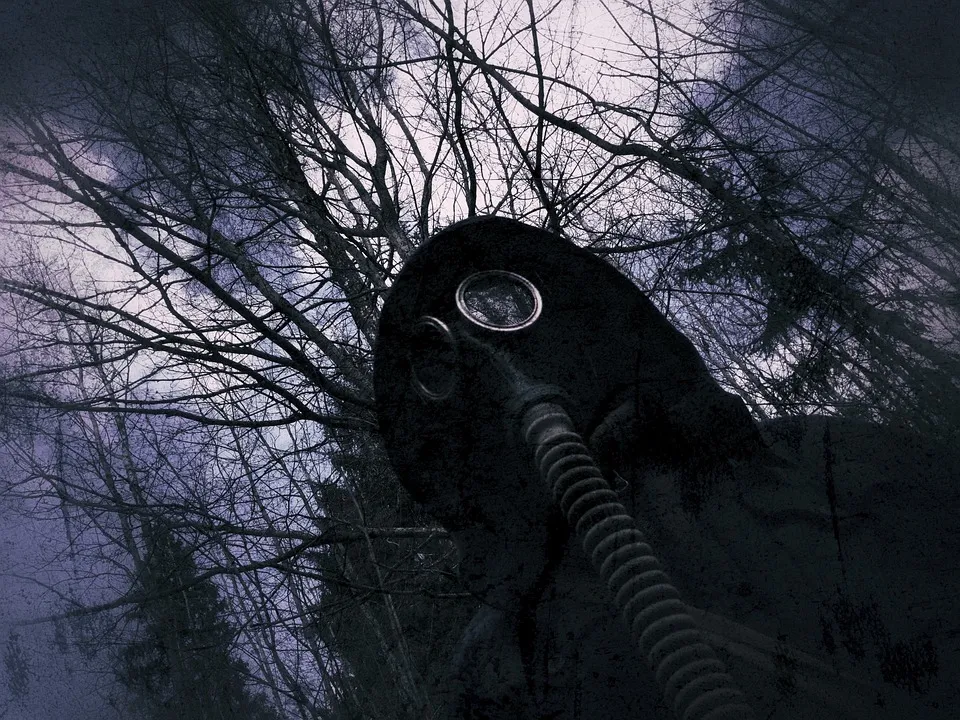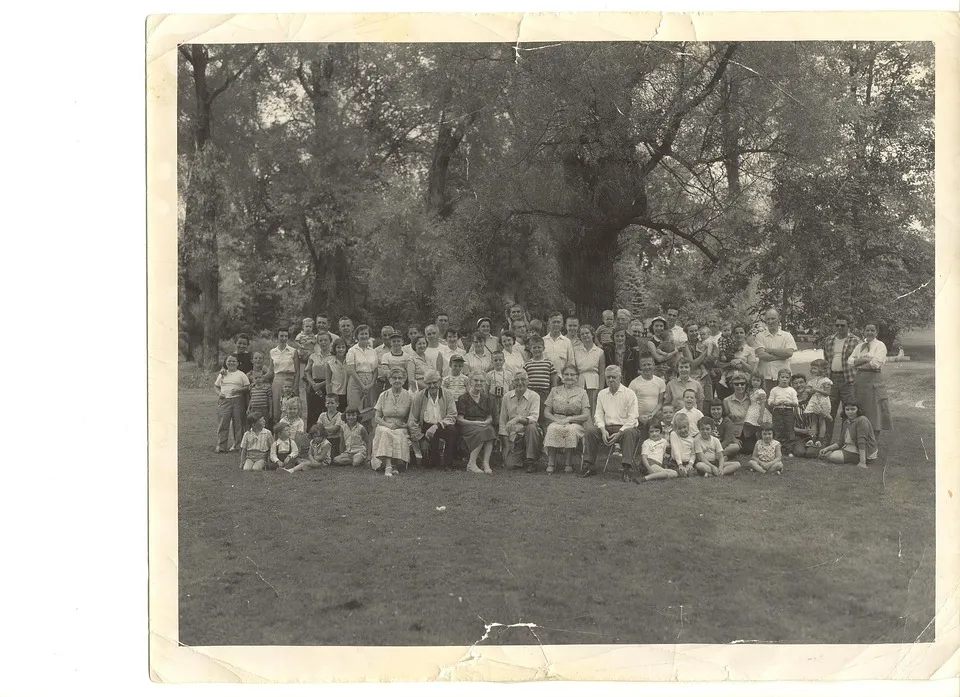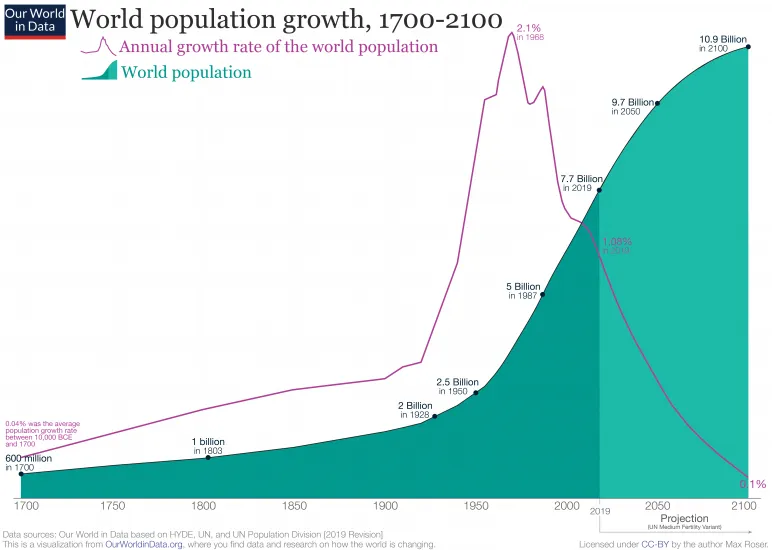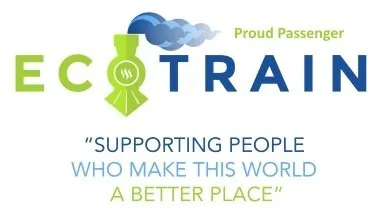It's Question of the Week-time again on the @ecotrain , and the QOTW this time has to do with procreation: Should we have children (...)? The question may be extended by various reasons and arguments, such as the state of this world, and / or / while so many children are suffering, as well as numerous other reasons. Since there are so many viewpoints in this topic, I realize I could probably write forever about his, so I'll try to keep it short, while touching on several aspects.
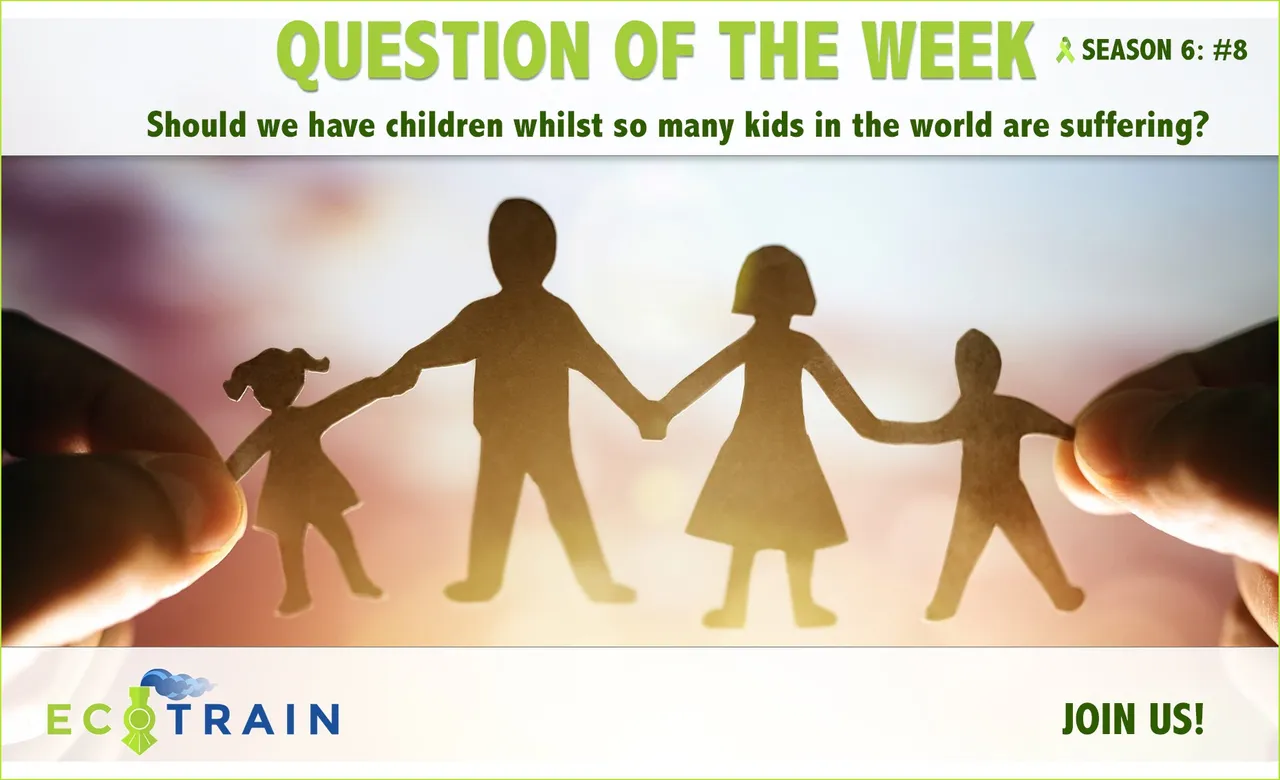
This World is Going to Pieces as We Speak
Well, this is nothing new, is it? Even among teenage baby boomers back in the 60's this was something you could hear all the time (I wasn't around back then, but that's what I heard). Clearly, between hearing WWII stories from their parents, and hiding under their desks as part of preparedness drills for a nuclear war, that generation grew up expecting the worst. And thus, putting children into this world was seen as not only pointless, but ultimately irresponsible. In the end, however, the nuclear war never came, and eventually the baby boomers also had their share of kids.
The state of the world, or the public perception thereof, didn't improve much. On the contrary: while the threat of nuclear annihilation shifted from the two superpowers to a few minor powers (and potentially a bunch of minuscule crazy villains), the list of end-of-the-world factors grew longer: Environmental contamination, economic collapse, overpopulation, climate change, the surge of righ-twing, left-wing, and religious extremism worldwide, oh and of course deadly viruses threatening to wipe out the human population. Who would want to expose their offspring to all these horrible things?
In all honesty, though, I think kids are the last ones to really care. For my generation growing up in the 80's, nuclear radiation sure was a thing, due to the Chernobyl meltdown, but nobody worried about a nuclear war, though the same threat was still there. Even after the fall of the iron curtain, when Russian warheads could have ended up in the hands of any petty dictator (and sure, some of them probably did in fact), this particular end-of-the-world scenario was rarely talked about seriously. There were others instead.
Actually, even if I had grown up in a radioactive wasteland, it probably wouldn't have bothered me as much as my parents, who were used to the butterflies in the sunshine, or whatever they took for granted in this / their beautiful world. Instead, I would have adapted myself to the conditions around me, and would have tried to make the best out of it, surviving for as long as possible, and sure: further reproducing before dying.
Personal Challenges for Becoming Parents
When I hear people argue against having children these days, the reason I keep hearing most often is not so much about the great fears for the world in total, but specifically about their own personal situation. Depending where they're from, this could be economical, meaning they can't imagine how they could possibly provide for their offspring (not only material things, but simply time to be there for them as a parent). The other reason has to do with the laws in place, restricting and controlling the way they raise their children. Of course, both factors can be changed in theory, but in practice this may be so difficult that it's seen as closer to impossible.
Another reason that I hear less often, but believe is just as important, is our modern notion of a "family". For most of human history the idea of a family included not only grandparents and parents' siblings, but also their spouses, their parents, their siblings, and of course all of their children. In fact, everyone who was somehow related was part of a unit, a clan, a village, who lived together, and helped each other with making a living. And that included raising children. Compared to that, the modern nuclear family, where both parents are full-time employed, is a mere shadow of its former self. However, just like in my previous example of the nuclear wasteland, most of us grew up in such a "deprived" condition, and don't think it was that bad (mostly).
Similarly, there are people out there who know they are simply not parent material. They know that they do not have any desire to be parents, and are thus aware that if they were forced into such a situation, they would do a poor job at it, resulting in horrible kids. And I'm sure we all know at least a few examples of a parent who ... well, would have done better not becoming one. So I tend to agree and support people with this view, especially since I often see myself as one of them. What's more, so does my wife, which makes us quite perfect for each other.
To swing back to the other side, there is another view that I also support quite a bit, which claims that all the trouble in this world can best be conquered by raising children in the right way, to become the kind of people who will heal the wounds of this world. Okay, the way I put it here does sound extremely idealistic. But then again, why not??? If someone really believes they can do it, by all means, let them go ahead and try! (It just won't be me.) Admittedly, the counter argument doesn't seem any more reasonable either. Though one should always keep in mind, in order to raise those wonderful kids, you will need to spend a lot of time with them (which is often a luxury), AND be allowed to teach them the values you hold (which oftentimes run contrary to the values of the system around them).
To Each Their Own
I believe the points I've raised by now are enough to open up many cans of discussion-worms that could go on forever. And the issue is usually quite contentious, as so many proponents of either side like to extend it to others, in fact may even go as far as including everyone! This is where I like to draw the line, and remind my interlocutor to just let people do whatever they want: let breeders breed, and let the extinctionists go extinct. Because people are going to do what they want anyway. And honestly, we should all realize that our opinions won't change the world, least of all in such a radical way.
I'm sure we all remember the population curve, back around the year 2000. Exponential growth was the term on everyone's mind, and we were certain we were just on the brink of reaching insane rates of growth. Well, in the last twenty years this hasn't really happened. The world population is growing less quickly, is starting to consolidate, and in fact, there is talk about a possible decline in the next decades. (This should get particularly interesting when the vast population of China reaches retirement age...) Still, we don't know what's going to happen, much less be able to change it.
So here's what I suggest we do instead:
- Leave it up to each person / couple whether they want to have kids, and also when, how, why, how many, and also how they decide to raise them.
- Go ahead and have as many / as few kids as you want. But once you've decided to have them, stick with your plan and go through with it. Be the best parent in the way you think you should be.
- Stop worrying about large-scale tendencies. There's little we can do about them. Your kids / or lack thereof are your business, and of nobody else, and the same thing goes for others as well.
